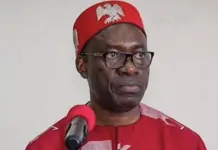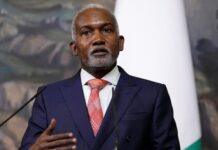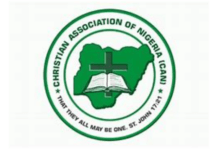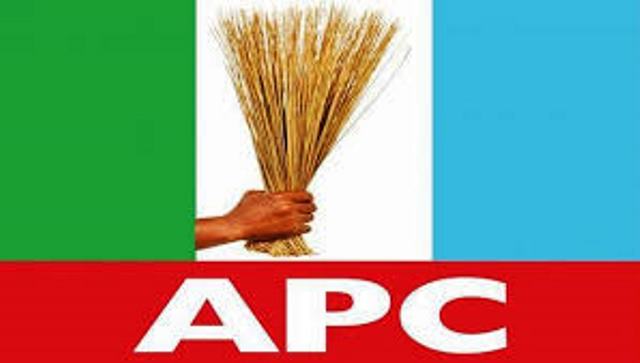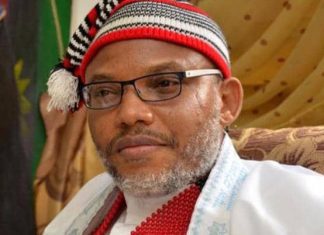Governors elected on the platform of the ruling All Progressives Congress (APC) have rejected the Senate’s proposal that political parties hold primaries to select candidates for elective offices ahead of the 2023 general elections.
The Senate recently amended the Electoral Bill to include a mandatory direct primary to select candidates to fly party tickets for various political parties.
Gov. Abubakar Bagudu of Kebbi state, who spoke at the end of the Progressive Governors Forum late Monday in Abuja, argued that adopting direct primaries for political parties would overstretch the Independent National Electoral Commission (INEC).
Some political parties, including the Peoples Democratic Party (PDP) and the Inter-Party Advisory Council (IPAC), had previously criticized the NASS position.
Read Also: Osun 2022: NNPP, like APGA will dethrone APC – Party Chairman, Odeyemi
Bagudu, who also called the decision undemocratic, pointed out that there had been concerns that political parties were purely voluntary organizations.
The governor stated that the governors were concerned that limiting the ability of parties to choose options that they desired would be “arguably undemocratic.”
He explained that this was due to the fact that nothing prevents one party from adopting one or the other.
According to the PGF Chairman, the meeting reviewed, among other things, political developments in the country and, in particular, in APC states.
He went on to say that the meeting also went over the party’s membership registration and the successful congresses.
The chairman praised the Caretaker and Extraordinary Convention Planning Committee (CECPC) led by Gov. Mai Mala Buni for the success of the congresses.
“The governors were particularly appreciative of the CECPC because of its respect for President Muhammadu Buhari’s expectations that they should support the party from the bottom up, which I believe was achieved in the previous exercise.”
Read Also: Where are Andy Uba’s 230,000 APC primary votes in Anambra? – Nigerians drag Gov. Abiodun
“Equally, we reviewed the congresses and advised on how we believe it should strengthen our democracy,” he said, adding that preparations for the party’s planned National Convention are underway.
“I believe that the party will soon inaugurate all of the state executives, and then some of the outstanding congresses that are scheduled to take place in Zamfara and Oyo States, as well as three other states, will be completed.”
“Then we’ll be able to set a date for the National Convention,” he said.
Governors from Nasarawa, Kano, Kebbi, Ekiti, Plateau, Yobe, Kogi, Ebonyi, Gombe, and Osun States were present, while Lagos and Ondo State governors were represented by deputies.
Meanwhile, the National Assembly’s two chambers passed the much-anticipated Electoral Act Amendment Bill 2021 on Tuesday, following extensive debate in both chambers on the bill’s Conference Committee report.
In accordance with customary legislative procedures, the two chambers established a high-powered conference committee in September to reconcile differences in the versions of the bill passed by the Senate and the House of Representatives.
Read Also: In Zamfara, bandits kill seven police officers and set patrol vehicle on fire
The 21 clauses were harmonized, including the contentious clause 52, which requires electronic transmission of election results (ETR).
The Senate version, which empowers the Independent National Electoral Commission (INEC) and gives it discretion to use Electronic Transmission of Results, was chosen by federal lawmakers.
Concerning the nomination of candidates by political parties, as outlined in Clause 87, the National Assembly adopted and passed the Senate’s version on direct primary as opposed to an indirect arrangement or leaving the option up to the political parties.
The National Assembly’s adoption of direct primary is bound to clash with the interests of the Progressive Governors’ Forum, which met in Abuja on Monday and expressed their displeasure with the direct primary arrangement.
On the floor of the Senate on July 15, an uproar erupted over the INEC’s method of transmitting results on election day.
This came as the upper chamber passed the long-awaited amended Electoral Bill, which will guide INEC in the conduct of future elections in the country.
The uproar began when the upper chamber attempted to change Clause 52(3) of the new Electoral Bill.
Read Also: Petition by the People’s Democratic Party the Kaduna Electoral Commission is in charge of the collation center
The Senate Committee on INEC and Electoral Matters had recommended that INEC reserve the right to transmit results electronically on election day, if applicable.
Sabi Abdullahi, the Senator representing Niger North, however, stated that the power to determine the practicability of electronic transmission should be delegated to the Nigerian Communications Commission (NCC) with National Assembly approval.
The Senate had begun a clause-by-clause review of the recommendations of its INEC Committee on the Electoral Act Amendment Bill 2021.
Section 52(3) of the bill stated that INEC may use electronic voting and result transmission processes, as well as any other method of voting that it deems appropriate, in any election that it conducts.
The section that allowed INEC to determine the electronic voting process was amended to allow the Nigerian Communication Commission (NCC) to determine the suitability of networks to conduct electronic voting processes with National Assembly approval.
Join Television Nigerian Whatsapp Now
Join Television Nigerian Facebook Now
Join Television Nigerian Twitter Now
Join Television Nigerian YouTUbe Now

